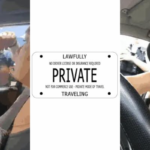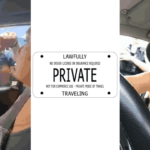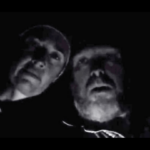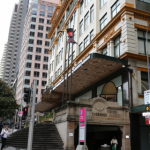The Misconceptions of Pseudolegal Preachers – Part 3: Knowing Your Rights
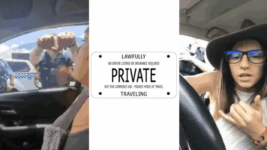
In part 1 and part 2 of this three-part series, we looked at how pseudolaw preachers disseminate false and unfounded information about the sources of law and nature of legal process, as well as promote inaccurate, ineffective and potentially dangerous legal tactics.
In this final instalment, we take a look at how sovereign citizens and others who consider themselves to be oracles of legal truth – despite predominantly basing their views on YouTube videos and obscure websites rather than the many years of intense legal study and research required to become a lawyer – misrepresent the legal rights of Australians.
What is the Magna Carta?
The Magna Carta is often referenced by pseudolaw preachers as the primary source of human rights law in all Commonwealth countries.
The Magna Carta Libertatium (Latin for “Great Charter of Freedoms”) is a royal charter of rights agreed to by King John of England in the early 13th century.
The Magna Carta came about within the context of a civil war. King John had a habit of ruling with an iron fist, asserting his power arbitrarily always with the justification that the King was above the law.
A group of rebellious landowners (called the barons) fought against their ill treatment. The Magna Carta was developed as a peace treaty between the barons and the King in 1215.
The Magna Carta consisted largely of idiosyncratic complaints of landowners at the time, but also included an explicit statement that the King was bound by the law. It also included one of the first notable expressions of individual rights:
No free man shall be seized or imprisoned, or stripped of his rights or possessions, or outlawed or exiled, or deprived of his standing in any other way, nor will we proceed with force against him, or send others to do so, except by the lawful judgement of his equals or by the law of the land.
To no one will we sell, to no one deny or delay right or justice.
Almost immediately after the Magna Carta was agreed to, King John backtracked on his promise and ruled ruthlessly for another year before dying in 1216. The new king, nine-year-old Henry III, stuck more consistently to the deal, revising the Magna Carta slightly during his reign, although finding himself still frequently at odds with the barons.
It was King Edward I (Henry III’s son) who declared that the Magna Carta would form part of common law and that any court judgements that went against it would be ‘undone and holden for naught’.
Whilst all of this is interesting legal history, the Magna Carta is not a source of 21st century Australian human rights law. In fact, you wouldn’t want it to be.
The document reads exactly as you would expect a 13th century peace treaty between a king and landowners to read like. Much of the document is focused on rules relating to inheritance of land and military obligations.
In fact, as a Charter of Freedoms it’s not a very good one. Here are some interesting features:
- “No one shall be arrested or imprisoned on the appeal of a woman for the death of any person except her husband” meaning the testimony of women regarding a fatal crime should be treated as lesser.
- “If a man dies owing money to Jews, his wife may have her dower and pay nothing towards the debt from it” which is one of three passages singling out Jews, because they were religiously permitted to offer interest bearing loans.
- “No town or person shall be forced to build bridges over rivers except those with an ancient obligation to do so” which was a right specifically designed because King John had a habit of forcing river crossings to aid his hunting.
The Magna Carta is viewed today mostly as an important historical moment in the long march towards the protection of individual rights and the acceptance of the rule of law.
However, if you cite the Magna Carta to a Judge or Magistrate as legal authority, you’re likely to encounter some eye rolling.
Freedom of Movement
“I’m not driving, I’m travelling” is a common shibboleth amongst pseudolaw believers who argue that various road rules, including the need for vehicle registration or a driver’s license do not apply if you are travelling for personal, and not commercial, purposes.
The origins of this belief appear to be a misinterpretation of a minority opinion in the 1934 decision of Robertson v Department of Public Works by the Supreme Court of Washington.
This judgment concerned an appeal by a contract hauler who was denied a permit to transport goods on two separate public highways. The majority of judges on the court found that the denial of permit was valid. However, in a dissenting opinion, Justice Tolman noted:
Complete freedom of the highways is so old and well established a blessing that we have forgotten the days of the “Robber Barons” and toll roads, and yet, under an act like this, arbitrarily administered, the highways may be completely monopolized. If, through lack of interest, the people submit, then they may look to see the most sacred of their liberties taken from them one by one by more or less rapid encroachment.
However, this comment was made in obiter dicta (a fancy way of saying, it didn’t form part of his judgment). The actual reason Justice Tolman was in dissent in this case is that he felt the regulator had not considered the application for a permit fairly and impartially.
There are three ways that this small segment of a dissenting judgment is misinterpreted:
- It is wrongly interpreted as recognising a right to travel free of legislative oversight or regulation. In fact, Justice Tolman was doing just the opposite, recognising the right of regulators to deny a permit, but wishing they did so in a fairer manner.
- It is wrongly interpreted as binding law in the United States. A dissenting opinion, particularly the obiter dicta of a dissenting opinion, is not binding on any courts in the United States.
- It is wrongly interpreted as binding law in Australia. Decisions made by courts in the United States are never binding on Australian courts.
The are countless other segments of US court decisions which are misconstrued and used to prop up the “travelling not driving” theory.
Another commonly cited passage includes: “the right to travel is a part of the liberty of which the citizen cannot be deprived without due process of law” from Kent v. Dulles. The claimant in this case Rockwell Kent, was denied a passport to travel to Europe from 1950 to 1955 on the basis of alleged links to the Communist Party. The statement is made to recognise that issuing a passport requires consideration of due process protections under the Fifth Amendment of the US Constitution. It did not deny the validity of the government to restrict travel, only that due process rights must be followed in doing so.
None of this, of course, has any relevance to Australian laws regarding the freedom of movement.
As a signatory to the International Covenant on Civil and Political Rights, Australian authorities do owe certain obligations to preserve the right to freedom of movement.
Article 12 of the Covenant begins by stating:
- Everyone lawfully within the territory of a State shall, within that territory, have the right to liberty of movement and freedom to choose his residence.
- Everyone shall be free to leave any country, including his own.
Does this mean that you are free to travel throughout Australia in any manner, without restriction? No. The sections goes on to say:
- The above-mentioned rights shall not be subject to any restrictions except those which are provided by law, are necessary to protect national security, public order (ordre public), public health or morals or the rights and freedoms of others, and are consistent with the other rights recognised in the present Covenant.
Setting a number of legal requirements for operating a motor vehicle in Australia, including licensing and registration, speed limits and other road rules; are allowed both under international and domestic human rights law.
Failing to abide by the road rules in NSW can carry some hefty penalties, and shouldn’t be done on the basis of the gross misconstruing of a handful of US cases.
Don’t be misled
This three part series was designed to help you avoid pseudolaw scams so that you don’t waste money and resources pursuing legal strategies that will never work.
When encountering any piece of legal information online, it’s important to consider the source and whether they can be trusted. A lawyer who is admitted to practice in Australia is always your best bet for quality legal advice.
When you’re unsure, here are some general questions ask:
- Does it claim legislation or statutes are unenforceable? If so, it’s misunderstanding a key source of Australian law.
- Is this selling a legal “trick” or “hack” to immediately avoid liability? If so, it’s almost always a pseudolegal scam.
- Does it claim you can “rescind a contract” with a court or government agency? If so, this is likely what Judge Cash of the District Court of Queensland would call “gobbledygook”.
- Is a statement about Australian law being made, but only US cases are cited? If so, this likely means that the author doesn’t understanding Australian law.
- Does it claim you don’t need a driver’s license or to follow the road rules? If so, you’re being lied to.
- Is the Magna Carta mentioned? If so, run for the hills!
Finally, if you see pseudolaw scams being shared widely on social media or on certain websites consider reporting it to the platform. There are direct, real world harms in spreading misinformation, particularly when it comes to legal matters.
Want actual legal help?
Call Sydney Criminal Lawyers anytime for accurate legal advice and exceptional representation by criminal defence lawyers who are vastly experienced in defending and winning criminal cases.
Our lawyers represent clients throughout New South Wales, including in the Sydney Metropolitan Area, Wollongong, Newcastle, Gosford and on the weekend in Parramatta Bails Court.

